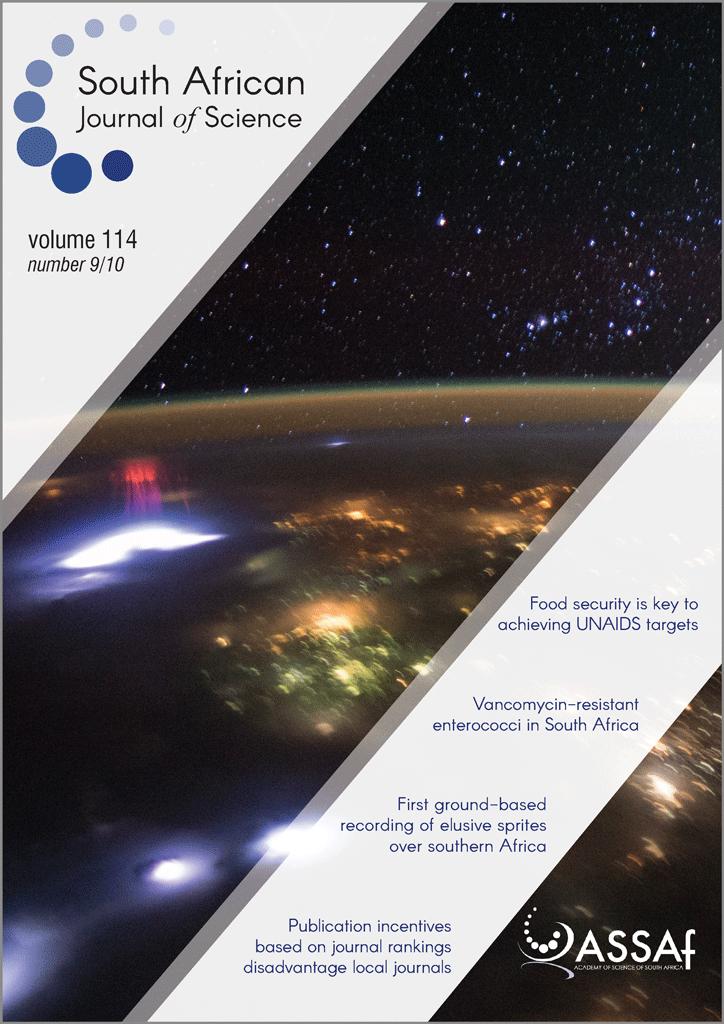Alcohol and other drug use among women seeking substance abuse treatment in the Western Cape, South Africa
DOI:
https://doi.org/10.17159/sajs.2018/4451Keywords:
female, alcohol and other drug treatment, poly-substance abuse, readmissions, barriersAbstract
Despite a high prevalence of alcohol and other drug use (AOD) in South Africa, little is known about AOD use among women, including those in treatment centres, and changes in use over time. This knowledge is important for the development of gender-sensitive interventions for the prevention and treatment of AOD problems. We aimed to describe changes in patterns of AOD use among women who accessed specialist AOD treatment centres in the Western Cape Province of South Africa. Data were collected from 51 specialist AOD treatment centres participating in the South African Community Epidemiology Network on Drug Use between 2000 and 2013. A total of 74 368 treatment episodes were recorded for the period, of which 22% involved women. The proportion of women seeking treatment increased from 4% to 11% over time. The most common primary substance of abuse among this sample was alcohol, followed by methamphetamine. Multinomial logistic regression analyses showed that young coloured (mixed race) women were almost 18 times more likely than other women to report methamphetamine as their primary substance of abuse (RRR=17.80; 95% CI=13.18–24.04). More than a quarter of women reported poly-substance abuse. Women treated for heroin were significantly more likely to be white and younger than 25 years old (RRR=1.62; 95% CI=1.19–2.21). These data portray an increasing use of AOD treatment services by women; particularly for alcohol and methamphetamine use disorders. Additional investigations into the service needs of women utilising AOD treatment is warranted.
Significance:
- The study provides the prevalence of AOD use disorders among women in substance abuse treatment facilities in the Western Cape.
- The study reflects treatment admissions for poly-substance abuse and severe AOD problems among these women.
- The findings highlight the importance of women-specific treatment programmes to encourage utilisation of substance abuse treatment services.
Published
Issue
Section
License

All articles are published under a Creative Commons Attribution 4.0 International Licence
Copyright is retained by the authors. Readers are welcome to reproduce, share and adapt the content without permission provided the source is attributed.
Disclaimer: The publisher and editors accept no responsibility for statements made by the authors
How to Cite
- Abstract 3405
- PDF 2629
- EPUB 283
- XML 482













.png)